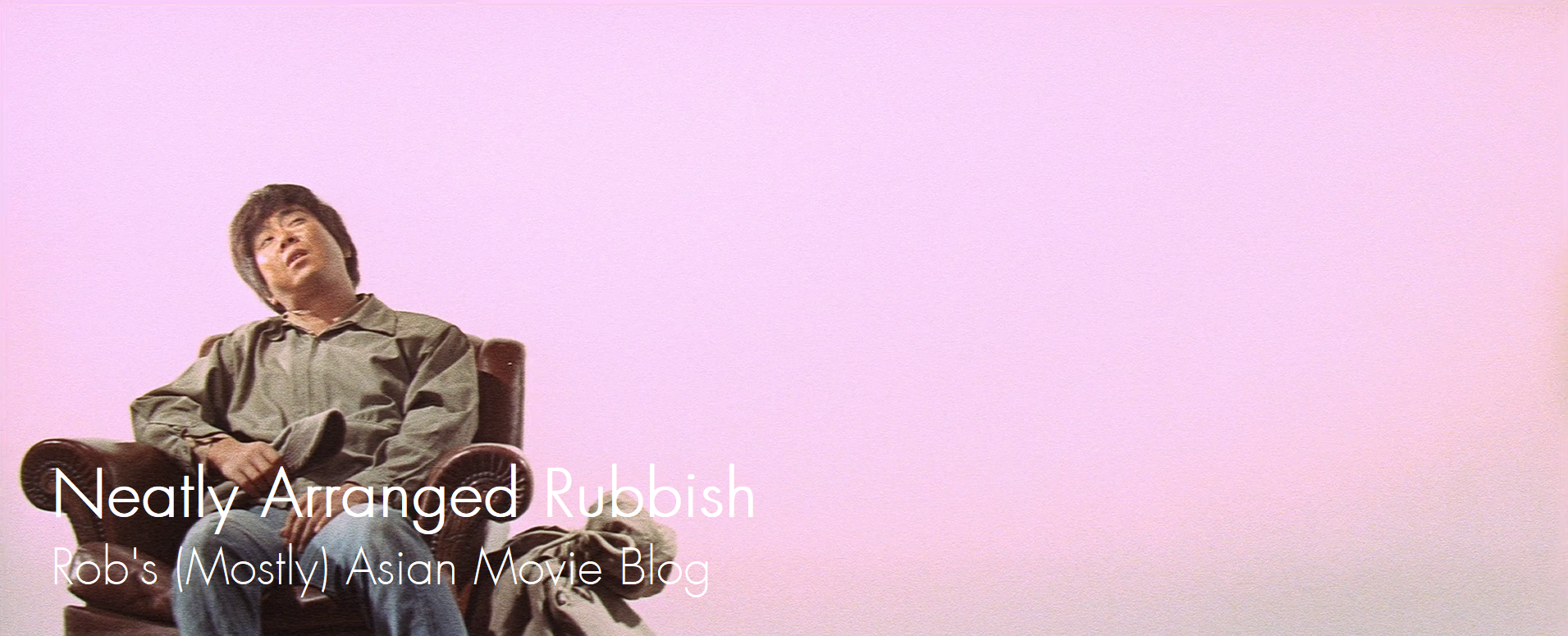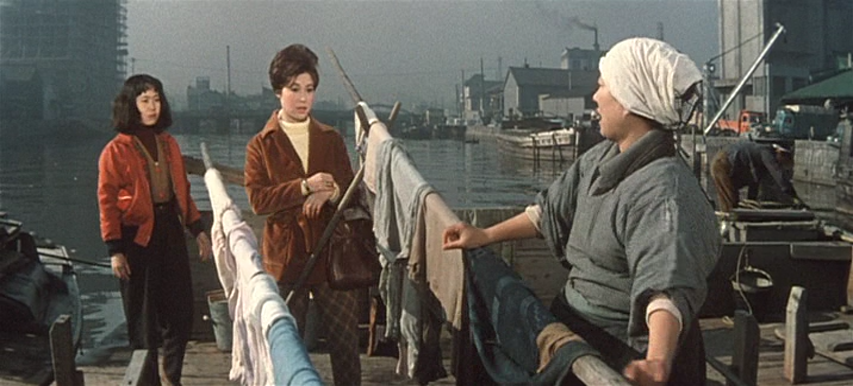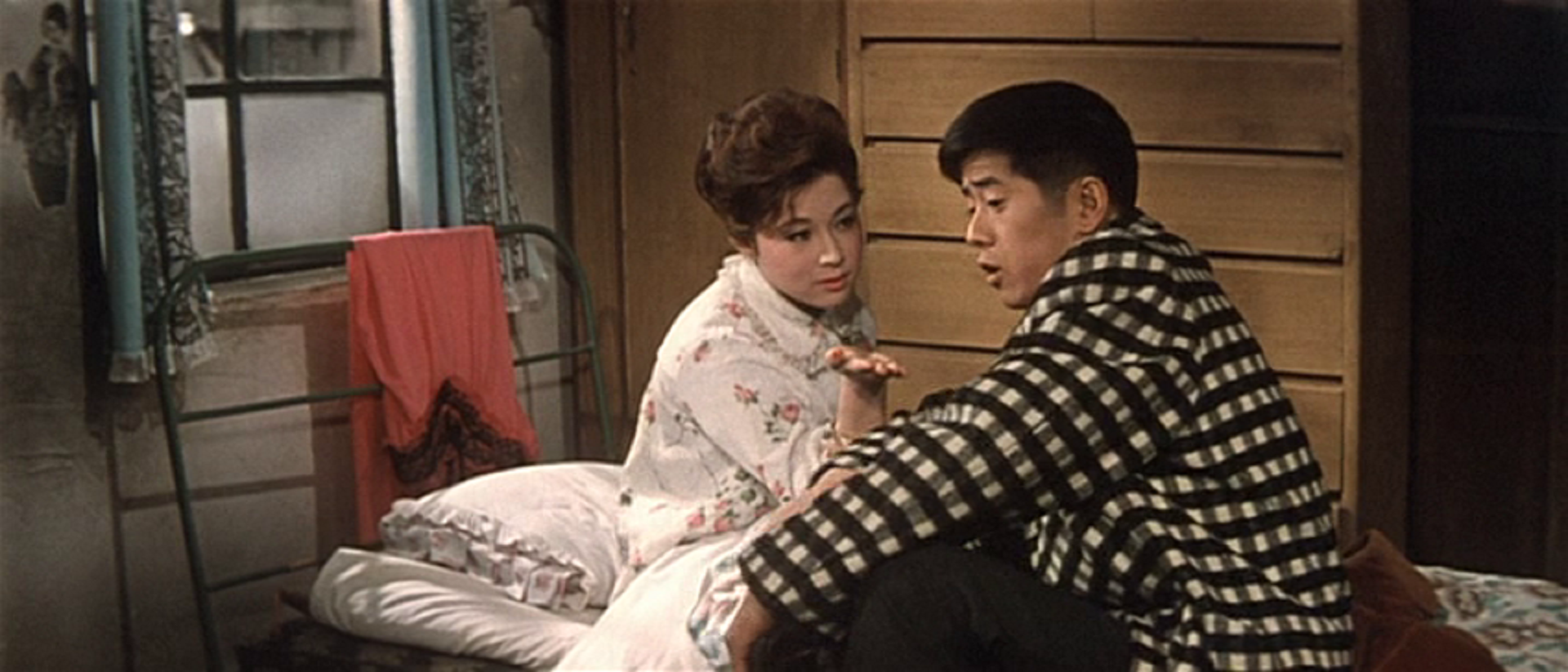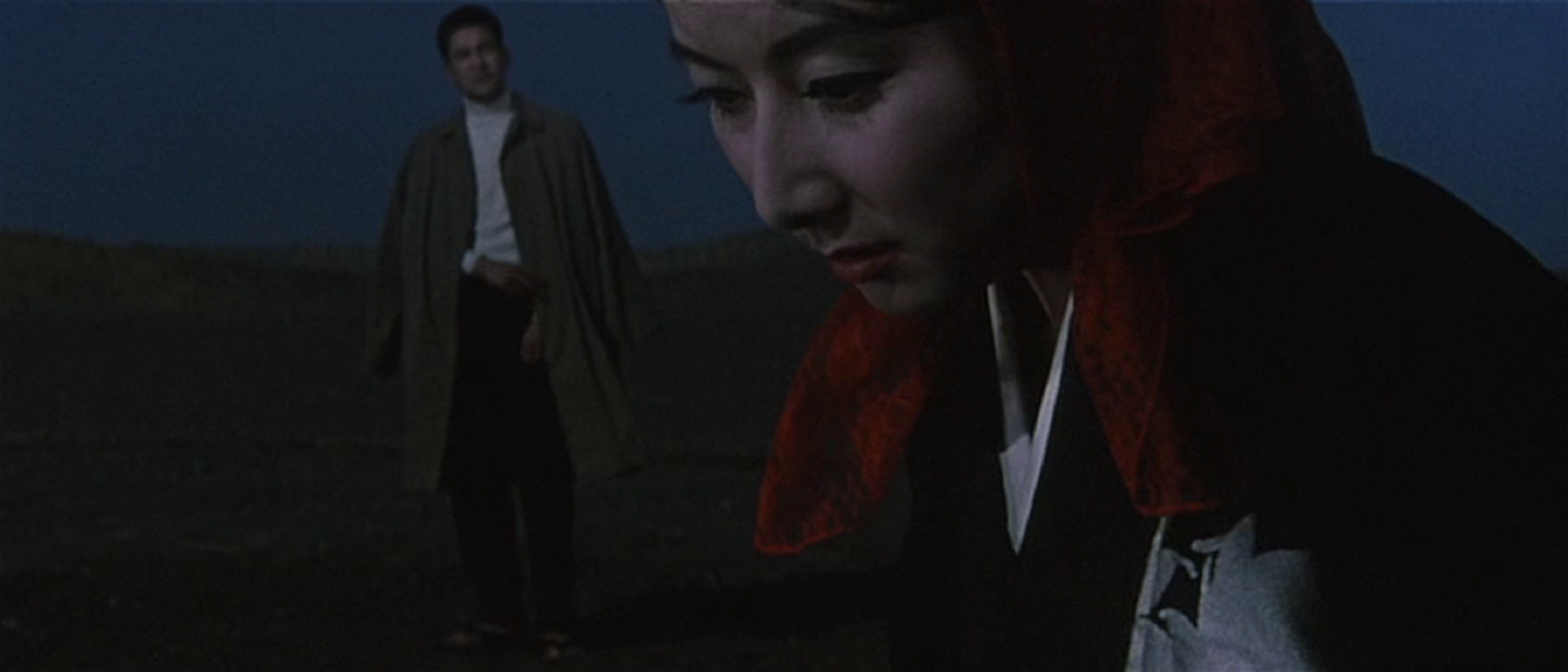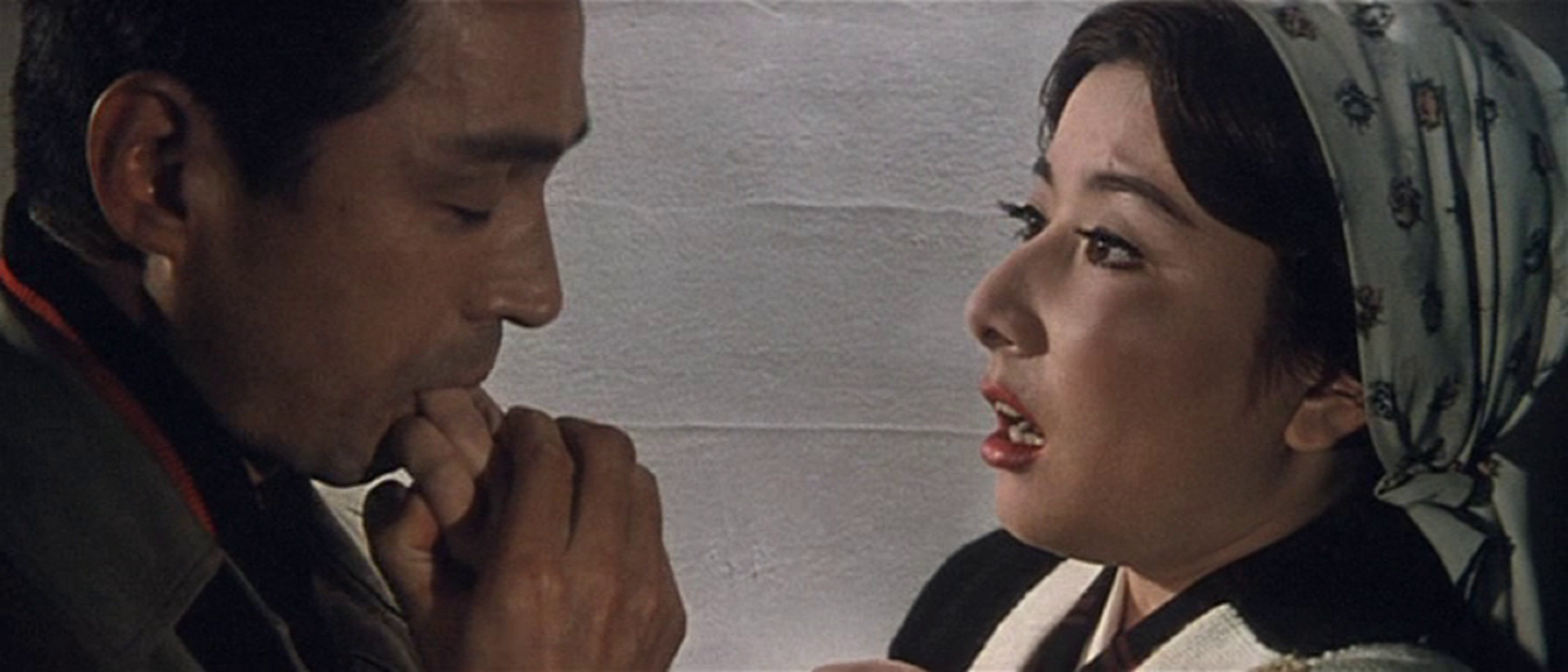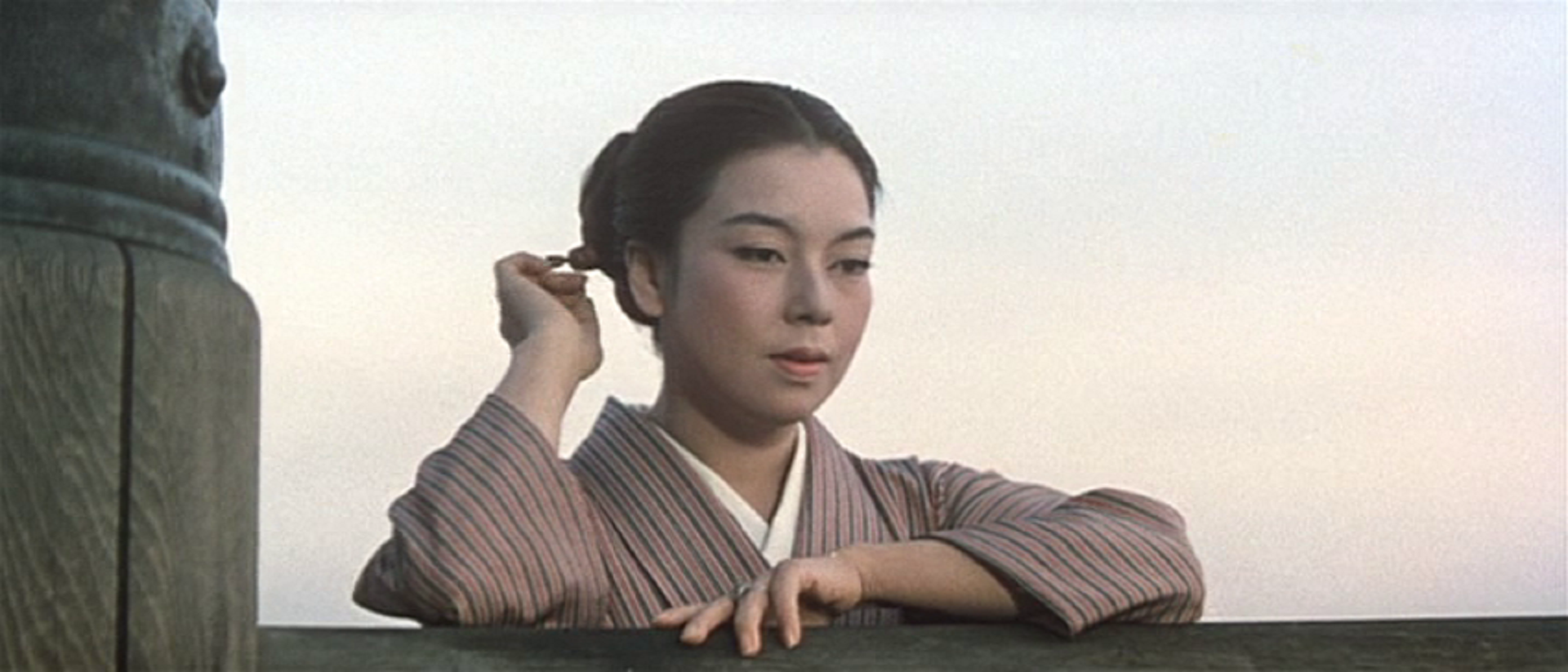Last Updated on October 17, 2020 by rob
An excellent anthology film comprising three determinedly unsentimental stories about the struggles of modern women. Despite getting on for 60 years of age it feels remarkably modern. Both in its depiction of women making their own way in the world and its sexual frankness (it’s certainly way ahead of anything coming out of Hollywood circa 1960). Masumura muse Ayako Wakao is a blast in the first story, the delightfully named The Woman Who Seems to Want to Nibble Ears. She plays Kimiko, a girl who lives on a barge with her sister and mother – and in one of the film’s charming moments expresses complete puzzlement at the sight of a Western-style toilet – who has a kink (the clue’s in the title) that pulls all the men to her like moths to a flame.
Kimiko isn’t nasty or cynical though. She’s simply a woman who completely understands the rules of the game as a club hostess, i.e., the men will promise anything to bed her while she just wants their money. Kimiko pursues her objective with the kind of youthful determination guaranteed to stir resentment from the older hostesses. But when the tactics Kimiko’s developed to extract money without having to sleep with her clients – everything from pre-arranged ’emergency’ calls from her younger sis about a supposedly terminally ill father to telling clients she can’t tonight because she’s picked up a dose of the clap (!) – give way to a night of sex with young Masami, the promise of wedded bliss beckons.
However the very next morning Kimiko is shaken to hear that Masami is due to get married that same day to another woman. What she doesn’t know is that Masami has cancelled the wedding because he really wants to marry Kimiko. But when he goes to tell her the good news she’s all business, telling him it wasn’t love and she was only in it for the money (she even demands Masami repay her for the hotel bill he saddled her with from the previous night). In a more, shall we say, Hollywood type of movie, this would have been the scene in which Kimiko realised the error of her ways or Masami decided she was a whore and not worth the bother. But the cleverness of the story is that because we’ve seen virtually the entire thing from Kimiko’s perspective we can’t help but understand her reaction even as we feel sorry for Masami and wonder if the couldn’t-care-less attitude Kimiko’s putting on might be a front.
Wakao is really good in this. By turns brassy and playful with a hint of vulnerability she’s instantly engaging and we never tire of seeing her on screen. The story wouldn’t work half as well as it does if we didn’t like her as much. Masumura’s confident direction is another plus. He socks over the hothouse atmosphere of the club Kimiko works in – with its bitchy hostesses and lecherous customers – to entertaining effect and the female characters (and it is a mostly female cast) are all treated with sympathy and affection. It’s a mostly studio bound production but the backdrop of cheap motel rooms, pachinko parlours, nightclubs and the location footage of tatty barges moored along the docks – makeshift homes for the destitute and poor – that comprise Kimiko’s world, evoke, under Hiroshi Murai’s colour cinematography a kind of grubby romanticism I found fascinating.
The second story The Woman Who Sells At A High Price, in which runaway writer Yasushi (Eiji Funakoshi) falls for the fatalistic Tsumeko (Fujiko Yamamoto), a forlorn beauty who seems destined to die unless a more sympathetic buyer for the forced sale of the beachside house she lives in can be found, is my favourite of the three. Right from the moment Yasushi wakes up alone on a beach at dawn to spy the beautiful Tsumeko looking out at him from the dunes I’m just as captivated as he is. It’s a spellbinding opening, beautifully photographed by cinematographer Setsuo Kobayashi who makes vivid use of the colour red to evoke a fatalistic tone that’s all part of the trap set to ensare Yasushi.
Fujiko Yamamoto’s performance as the ethereal woman in a kimono who speaks in an exaggeratedly refined tone (at one point late in the game Yasushi amusingly tells her to “Drop the silly posh accent!”) strikes just the right note of intrigue. Director Ichikawa infuses the story with a playful sensibility thanks to two lovely performances from Yamamoto and Funakoshi.The former is excellent in dual roles, sending up the image of the proverbial demure, fragile woman who needs a chivalrous man to save her and very amusing indeed as the no nonsense businesswoman who’s equal to any man (a scene where she professionally counts off a wad of bills in seconds as her male co-conspirators look on in astonishment is an absolute hoot).
But as good as Yamamoto is she’s matched by a delightfully self-aware performance from Funakoshi who slyly conveys the suspicion that he knows he’s being conned even as he willingly plays along because he is genuinely falling in love with this woman. There’s a scene at the end when Yasushi catches up with Tsumeko who is so shocked at his appearance she singes her fingers on an iron. Yasushi gently takes her hand and places her fingers in his own mouth to soothe the pain. It’s a great sensual moment because it demonstrates just how in love with her he is and what we end up with is a victory for a man and a woman who are shown to be equals and thus really do deserve each other. An excellent story then, very well acted and directed. I liked it a lot.
The most conventional of the three – at least on the surface – is Yoshimura’s The Woman Who Forgot Love in which hard-hearted bar owner Mitsu (Machiko Kyo) proves indifferent to the financial hardship of her newly engaged sister-in-law Yumiko (Junko Kano) and that of a schoolboy named Fujunami, who’s been struck by a passing car and lies injured in her bar Ikariya. At least that is, until an encounter with old flame Kanemitsu (Jun Negami) changes her profoundly. This is a very subtle character study of a woman who comes to realise the costs of her own selfishness. In a discussion over money with her sister-in-law Mitsu dismisses the idea of a man being able to make a woman happy, “I have bitter experience in these matters”, she warns Yumiko, only to be accused by the latter of caring only for wealth, indeed using marriage to her brother as a way to seize control of Ikariya. “Bills, accounts.. they won’t make you happy and you never have been.” You can tell from the look on Mitsu’s face that this hits home.
Later, Mitsu’s encounter with her drunken father-in-law sheds light on the sexual favours she once gave him after she lost her baby and was presumably threatened with being thrown out on the street. In what amounts to a series of nicely underplayed vignettes we come to understand (and not unsympathetically either) why Mitsu is the way she is. But when the dishevelled and sad sack figure of Kanemitsu turns up and we learn that he was Mitsu’s one and only true love and that she left him many years before to marry into Ikaryia the emptiness of Mitsu’s own life hits her like a ton of bricks and the moment packs a real emotional wallop. What follows is enjoyable audience pleasing stuff as a transformed Mitsu volunteers to give blood to save the injured schoolboy’s life and then gives an astonished Yumiko and her husband to be the money they need so they can go off happily. But the real satisfaction is in observing the look on Mitsu’s face throughout these scenes, the look of a woman who has finally woken up from a living nightmare.
